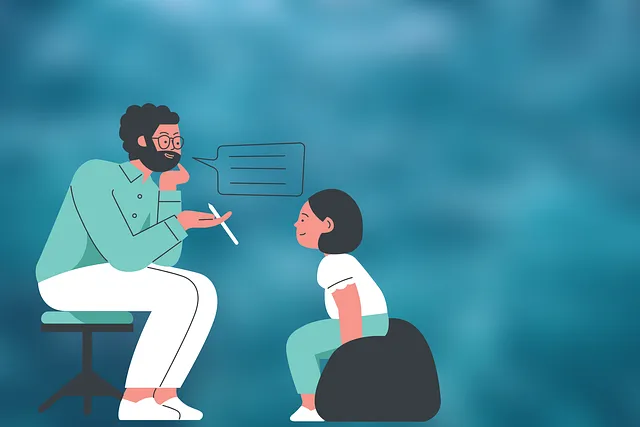Mental wellness group facilitation, a core component of Kaiser Denver's accessible mental health services, guides diverse individuals through structured processes using techniques like active listening and emotional intelligence training. This approach benefits participants by fostering emotional well-being, building resilience against stress and anxiety, and preventing burnout. Kaiser Denver, a leading healthcare provider, integrates self-awareness exercises and advocates for supportive Mental Health Policy Analysis. Effective group facilitation techniques create safe spaces, enhance emotional healing, and equip individuals with tools to manage their mental health long-term. Measuring success through diverse methods drives continuous improvement in programs like Healthcare Provider Cultural Competency Training, ensuring tailored care options accessible to all through Kaiser Denver's comprehensive network. Learn how to access these services today.
Mental wellness group facilitation plays a pivotal role in enhancing access to care, fostering support networks, and promoting healing. This article explores effective techniques for leading such groups, focusing on creating safe spaces within Kaiser Denver’s framework. We’ll delve into strategies to engage participants, measure progress, and continually improve services. Understanding these methods can empower both facilitators and individuals seeking mental health support through Kaiser Denver, ultimately enhancing overall well-being.
- Understanding Mental Wellness Group Facilitation
- Kaiser Denver's Role in Accessing Mental Health Services
- Effective Techniques for Group Sessions
- Creating a Safe and Supportive Environment
- Measuring Success and Continuous Improvement
Understanding Mental Wellness Group Facilitation

Mental wellness group facilitation involves leading a diverse range of individuals through a structured process aimed at enhancing their emotional well-being and fostering supportive connections. It’s an art that requires a deep understanding of mental health dynamics and effective communication skills to create a safe, inclusive environment.
In the context of Kaiser Denver, where access to mental health services is available, group facilitation plays a vital role in supporting individuals navigating various challenges, from stress management and anxiety to more complex issues. Facilitators use techniques like promoting active listening, encouraging open dialogue, and teaching emotional intelligence to help participants develop coping strategies and build resilience. This approach not only benefits those seeking mental health support but also contributes to burnout prevention and the overall design of engaging mental health education programs.
Kaiser Denver's Role in Accessing Mental Health Services

Kaiser Denver plays a pivotal role in improving access to mental health services in the region. As a leading healthcare provider, they offer comprehensive care options tailored to diverse needs. Individuals seeking support can benefit from Kaiser’s integrated network of professionals, which includes psychiatrists, psychologists, and counselors. This accessibility is enhanced through various programs designed to cater to different demographics and challenges.
One effective approach is integrating self-awareness exercises into their services, empowering individuals to recognize and manage their emotional states. Additionally, Kaiser Denver actively engages in Mental Health Policy Analysis and Advocacy, ensuring that local policies support the community’s mental well-being. Their efforts contribute to a more holistic understanding of emotional regulation, making mental health care accessible and inclusive for all.
Effective Techniques for Group Sessions

Effective group facilitation techniques play a pivotal role in enhancing mental wellness among participants. At Kaiser Denver, professionals often leverage structured activities and interactive discussions to create a safe, supportive environment where individuals can share their experiences and learn from one another. One powerful method is Crisis Intervention Guidance, which helps members navigate through emotional turmoil and offers practical tools for coping with stress or traumatic events.
Moreover, building resilience is a core aspect of successful group sessions. Facilitators encourage participants to cultivate positive thinking, develop problem-solving skills, and explore healthy coping mechanisms. By integrating these strategies, Kaiser Denver ensures that individuals leave the group feeling empowered and equipped to manage their mental health effectively. This holistic approach not only addresses immediate needs but also fosters long-term mental wellness.
Creating a Safe and Supportive Environment

Creating a safe and supportive environment is pivotal for effective mental wellness group facilitation. This begins with establishing ground rules that encourage open communication, respect, and confidentiality. Facilitators should model active listening and non-judgmental attitudes, fostering an atmosphere where participants feel comfortable sharing their experiences and emotions. Incorporating techniques like empathy, reflection, and normalizing varied emotional responses can help individuals process their feelings safely.
At the heart of this approach is the idea that a nurturing space facilitates Emotional Healing Processes and Emotional Regulation. Kaiser Denver offers resources for accessing mental health services, providing platforms for folks to begin or continue their healing journeys. Through Compassion Cultivation Practices, facilitators can guide groups in cultivating empathy and understanding, which are essential components for building resilience and enhancing overall mental wellness.
Measuring Success and Continuous Improvement

Measuring success and implementing continuous improvement are vital components of effective mental wellness group facilitation. To assess progress, facilitators can employ various methods such as pre- and post-group assessments, participant feedback forms, and observational notes. By comparing initial to final scores on standardized measures of mental health symptoms, coping strategies, and social skills (e.g., Social Skills Training tools), facilitators gain valuable insights into the program’s impact.
Additionally, fostering open dialogue with participants through group discussions or one-on-one interviews can uncover valuable perceptions about the group experience. This qualitative data complements quantitative metrics and helps identify areas of strength and need. For instance, while survey results may indicate improved coping skills, personal narratives might reveal challenges in applying these skills in real-life settings. Integrating such feedback into Healthcare Provider Cultural Competency Training ensures ongoing refinement and adaptation to meet the evolving needs of participants, like those seeking mental health services through Kaiser Denver.
Mental wellness group facilitation plays a pivotal role in enhancing access to mental health services, particularly through organizations like Kaiser Denver. By employing effective techniques such as creating safe spaces and measuring success, facilitators can foster supportive environments that encourage individuals to seek help. Understanding these strategies is key to revolutionizing how we navigate mental health support, ensuring folks have access to the resources they need to thrive. To get mental health services through Kaiser Denver or similar providers, adopting these facilitation techniques can make a significant difference in creating inclusive and accessible environments.






